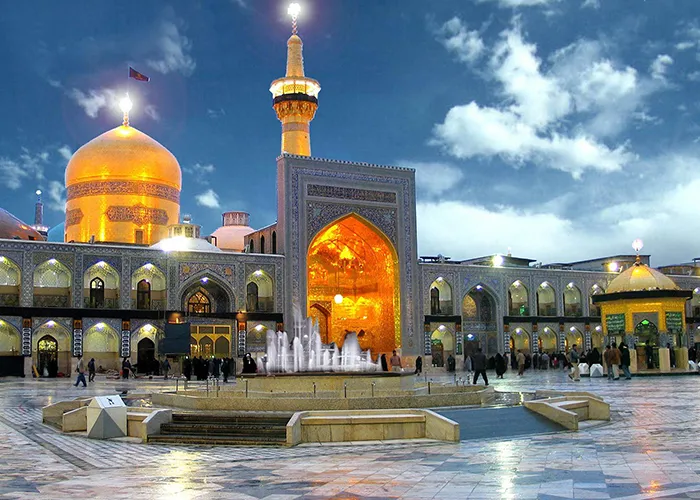Editorial – volume02 Issue19
Honouring Compassion and Spiritual Legacy: Imam al-Ridha (a.s.) and the Global Celebration of Nurses
Introduction:
As we journey through the spiritual and moral landscapes of our time, the Islamic tradition continues to offer guiding lights rooted in both devotion and duty. In this week’s issue of our weekly Friday Bulletin, we turn our hearts and minds toward two deeply meaningful occasions: the birth anniversary of Imam Ali ibn Musa al-Ridha (a.s.) on the 11th of Dhul Qa‘dah, and International Nurses Day on the 12th of May. These occasions, though separated by centuries and contexts, are united in their emphasis on service, healing, and the elevation of the human soul.
Both events offer us unique opportunities to reflect on our responsibilities as Muslim leaders, educators, and caregivers in a diverse and often challenging world. They call on us to integrate spiritual wisdom with ethical action, whether by commemorating the life of a great Imam who embodied knowledge and mercy, or by honouring those whose daily work revives hope and life in the ill and vulnerable.
11 Dhul Qa‘dah: The Blessed Birth of Imam Ali ibn Musa al-Ridha (a.s.)
The 11th of Dhul Qa‘dah marks the birth of the eighth Imam of the Ahl al-Bayt (a.s.), Ali ibn Musa al-Ridha (a.s.), a towering figure in Islamic history known for his immense knowledge, compassion, and patience. His life was a living expression of divine mercy and wisdom, engaging with scholars of all backgrounds, leading with gentleness, and elevating the discourse of truth in a time of great political and social turbulence.
Imam al-Ridha’s (a.s.) legacy is one of bridging intellectual traditions and spiritual insight. During his lifetime, he participated in theological debates with scholars from various religions and sects, not to dominate but to clarify and convey the essence of Islamic teachings with logic and grace. His famous dialogues in the court of Ma’mun showed that Islamic thought is not only rooted in revelation but is also open to reason and respectful dialogue. The Imam’s presence in Khorasan, far from his home in Medina, symbolised the forced displacement of truth into political spaces, yet he never abandoned his ethical integrity or his responsibility to guide. His shrine in Mashhad continues to inspire millions, standing as a testament to his enduring influence on both the hearts and minds of Muslims across the world.
Today, the message of Imam al-Ridha (a.s.) remains urgently relevant. His deep intellectual engagement and insistence on respectful dialogue model how Muslims can uphold their principles while interacting with a pluralistic society. The Imam reminded believers that true religiosity is not just ritualistic adherence but an embodiment of ethics, care, and accountability as well. His statement:
“الصَّغائرُ مِنَ الذنوبِ طُرُقٌ إلى الکبائرِ”
“Minor sins are pathways to major sins”
offers a timeless reminder that spiritual vigilance and integrity must start with the smallest of our actions. From a psychological and behavioural science perspective, this insight aligns with the well-documented principle of moral desensitisation, where frequent engagement in seemingly trivial wrongs gradually erodes ethical sensitivity, lowering resistance to greater transgressions over time. This profound hadith is explored in greater depth in the Hadith of the Week section of this issue, offering reflections and practical lessons for different groups in our community.
Message for Muslims in the West: Imam al-Ridha’s (a.s.) life teaches Muslims living in non-Muslim societies the importance of moral awareness even in the smallest actions. In environments where ethical boundaries can easily blur, his emphasis on integrity, piety, and vigilance serves as a guide to resisting the gradual normalisation of sin. Upholding Islamic values in both private and public life helps prevent moral erosion and strengthens individual and communal spiritual resilience.
Practical Challenge: This week, study one hadith from Imam al-Ridha (a.s.) and share its meaning and relevance with your community or family, either in a discussion circle or via a social media post.
12 May: International Nurses Day
Celebrated annually on 12 May, International Nurses Day pays tribute to the invaluable role that nurses and healthcare workers play in preserving life and promoting human dignity. Their tireless efforts, especially during pandemics and humanitarian crises, are not just acts of professional care but also deeply moral and spiritual services. Islam recognises this virtue profoundly. The Qur’anic verse:
وَمَنْ أَحْيَاهَا فَكَأَنَّمَا أَحْيَا النَّاسَ جَمِيعًا (المائدة: ۳۲)
“And whoever saves a life, it is as if he had saved all of mankind”
powerfully captures the spirit of nursing. This verse underscores that any act that sustains or improves a human life is immensely valuable in the sight of God. Islam encourages the support of all those who alleviate suffering, whether physically, emotionally, or spiritually.
This profound Ayah is explored in greater depth in the Ayah of the Week section of this issue, offering reflections and practical lessons for different groups in our community.
Message for Muslims in the West: In an increasingly individualistic society, Muslims must uphold the Qur’anic ethos of care by supporting and valuing healthcare professionals and by embodying that spirit of care in their own lives towards family, neighbours, and the vulnerable.
Practical Challenge: Take a moment to express gratitude to a nurse or caregiver in your community. If possible, organise a small appreciation initiative at your mosque or centre to honour their work.
editor's pick
news via inbox
Subscribe to the newsletter.




